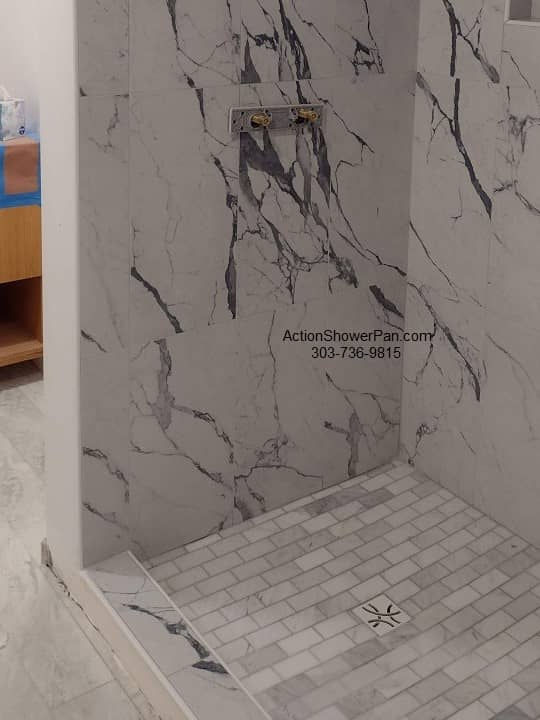Tub to Shower Conversion Cost
- Action Shower Pan & Steam Shower Company

- Jul 26, 2025
- 4 min read
Transforming a bathroom can significantly enhance its functionality and style. One popular trend in bathroom remodeling is the tub to shower conversion service. This transformation not only modernizes the space but also provides numerous benefits for homeowners. In this blog post, we will explore various aspects of tub to shower conversions, including costs, benefits, and tips for a seamless installation.
The Appeal of Tub to Shower Conversions
Over the years, traditional bathtubs have lost appeal for many homeowners. Showers offer convenience, faster access, and often take up less space than standard bathtubs. The allure of a tub to shower conversion lies not just in looks, but in practicality. This is especially important in smaller bathrooms where maximizing space is key.
Moreover, taking a shower typically uses less water than filling a bathtub. According to the Environmental Protection Agency (EPA), replacing a bathtub with a shower can save up to 1,100 gallons of water annually. This not only benefits the environment but also helps homeowners save on water bills.
Understanding the Costs Involved
When considering a tub to shower conversion, understanding the associated costs is crucial. On average, homeowners spend between $1,200 and $6,000 for a complete tub to shower conversion, depending on various factors.

Several factors influence the overall cost:
Materials: The choice of materials can significantly impact the total budget. For instance, high-end tiles can cost up to $10 - $35 per square foot, while basic options may start as low as $2 per square foot.
Labor: Hiring professionals for renovations ensures quality workmanship. Labor costs can vary depending on the contractor's experience and location.
Additional Features: Adding features like built-in shelves, grab bars, or advanced showerheads can increase the conversion cost. For example, a rain showerhead can add between $300 and $900 to the overall price.
Location: The geographic area where the house is located can also affect pricing due to varying cost-of-living indices and labor rates. Urban areas tend to have higher costs compared to rural ones.
Benefits of Tub to Shower Conversion
Aside from aesthetic upgrades, a tub-to-shower conversion offers several advantages that appeal to many homeowners.
Accessibility
For individuals with mobility issues or elderly homeowners, showers are typically easier and safer to navigate than bathtubs. For instance, a walk-in shower with a low threshold can reduce the risk of slips and falls, making bathing a safer activity.
Space Efficiency
Showers can create a more spacious feel in smaller bathrooms. Open designs and frameless glass enclosures, for instance, can create a less cramped appearance. Homeowners often report that after a conversion, their bathrooms feel more open and less cluttered.
Increased Home Value
A bathroom remodel, particularly a tub to shower conversion, can significantly increase a home's resale value. Research indicates that homeowners can recoup around 70% to 80% of their remodeling costs when selling their home, especially if the conversion is well-executed.
Installation Process Overview
Understanding the installation process provides clarity and prepares homeowners for what to expect.
Design Consultation: After deciding on a conversion, the first step typically involves consulting with a bathroom designer or contractor. They will discuss design ideas, materials, and costs associated with the project.
Preparation: The installation team prepares the area, which includes removing the existing tub, adjusting plumbing, and inspecting any underlying issues.
Installation: This phase involves installing new plumbing as needed, laying tile work, and constructing the shower surround. Professionals will handle any necessary electrical or plumbing adjustments during this phase.
Final Touches: Once the shower is installed, the team will complete any cosmetic work, which may include sealing and cleaning the area.

Tips for a Successful Conversion
Homeowners contemplating a tub-to-shower conversion can benefit from the following insights:
Budget Wisely: Ensure the budget allows for all necessary components, including materials and labor. It is important to factor in a contingency of about 10% for unexpected expenses.
Choose Quality Materials: Investing in durable, high-quality materials can enhance longevity and decrease future maintenance efforts. For instance, opting for a fiberglass shower base over a more fragile acrylic can prevent cracks and leaks.
Focus on Design: Consider the overall design and aesthetics of your new shower. Selecting colors, tile patterns, and fixtures that complement other aspects of the bathroom creates a unified look.
Think Long-Term: Keep in mind how your needs might change in the future. Features that accommodate aging or shifting mobility needs can be a wise investment, ensuring the bathroom remains functional for years to come.
Final Thoughts
Action Shower Pan & Steam Shower Company LLC offers tub-to-shower conversion services, providing flexible solutions for bathroom remodeling. Homeowners can create a modern, practical space that meets both current and future needs. While costs can vary, understanding expenses and selecting quality options can lead to a successful bathroom transformation.
The benefits of increased accessibility, improved aesthetics, and enhanced property value make this service an attractive choice for many homeowners. If you are considering a bathroom remodel, a tub-to-shower conversion may be the upgrade you need.

As always, careful planning and consultation with professionals can ensure a smooth and rewarding bathroom remodeling experience.






Comments